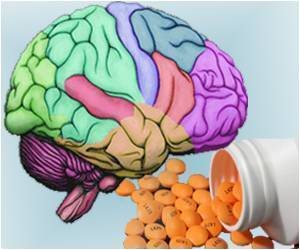Researchers have long known that the p53 protein suppresses tumors.

"The p53 protein is necessary for tumor suppression," said Xinbin Chen, professor at the UC Davis Schools of Medicine and Veterinary Medicine. "When Rbm38 suppresses p53, organisms develop tumors. Knocking out Rbm38 increases p53, which we thought might be a good thing. But too much p53 suppresses cell-cycle progression, causing cell death, premature aging and even cancer."
The relationship between p53 and Rbm38 can best be described as a loop: p53 regulates Rbm38 expression, while Rbm38 suppresses p53. Sometimes the results are unpredictable, even contradictory. Higher Rbm38 levels have been found in certain breast and colorectal cancers and dog lymphoma. However, increased Rbm38 is also associated with better prognoses in glioblastoma, ovarian cancer and other forms of breast cancer.
Considering the complex role Rbm38 plays in cancer, Chen and his team wanted to understand what would happen if Rbm38 was removed from the equation. Would increased p53 levels enhance tumor suppression?
The answer was a resounding no. Knocking out Rbm38, and thus increasing p53, caused problems with blood formation, increased sensitivity to ionizing radiation and premature aging.
"We found that the mice had problems with wound healing, anemia and other aging phenotypes," notes Chen. "Increased p53 levels cause apoptosis, which leads to shorter lifespans."
These intricate interactions are cause for both caution and excitement. While too much p53 can be a bad thing, carefully manipulating these two proteins could have therapeutic benefits.
Other authors included Enshun Xu, Cong Ren, Wensheng Yan, Min Zhang, Mingyi Chen, Robert D. Cardiff, Denise M. Imai and Erik Wisner.
This research was supported by NIH grants CA076069, CA08123 and CA121137.
Source-Newswise
 MEDINDIA
MEDINDIA




 Email
Email







